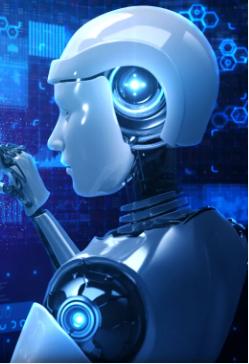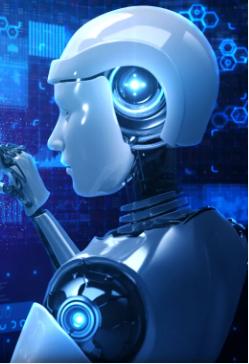What if the most transformative technology of our time isn’t something we can see or touch, but something that works silently in the background, shaping our decisions, experiences, and even our future? Artificial Intelligence (AI) is no longer a futuristic concept—it’s a present-day reality, quietly redefining what it means to be human.
From the way we communicate to how we solve global challenges, AI is at the heart of a seismic shift in how we live and interact with the world. This article dives into the profound ways AI is reshaping our lives, industries, and the very fabric of society.
AI in Communication: Breaking Barriers, Building Connections
Language is one of humanity’s most powerful tools, and AI is making it more accessible than ever. Tools like real-time translation apps and AI-powered transcription services are breaking down language barriers, enabling people from different cultures to connect and collaborate.
For instance, platforms like Google Translate use AI to provide instant translations in over 100 languages, making it easier for travelers, businesses, and even students to navigate a globalized world. Similarly, AI-driven captioning tools are making content more accessible to people with hearing impairments, fostering inclusivity in ways that were once unimaginable.
AI in Creativity: The Rise of the Machines as Artists
Creativity was once considered a uniquely human trait, but AI is challenging that notion. From composing music to generating art, AI is proving that machines can be creative too. Tools like OpenAI’s DALL·E and ChatGPT are pushing the boundaries of what’s possible, enabling users to create stunning visuals or write compelling stories with just a few prompts.
For example, musicians are using AI to compose original scores, while filmmakers are leveraging AI to enhance visual effects and streamline editing processes. This collaboration between humans and machines is opening up new avenues for artistic expression, blurring the lines between creator and tool.
AI in Sustainability: Tackling Global Challenges
As the world grapples with climate change and resource scarcity, AI is emerging as a powerful ally in the fight for sustainability. AI-powered systems are being used to optimize energy consumption, reduce waste, and even predict natural disasters.
In agriculture, AI is helping farmers monitor crop health, predict weather patterns, and optimize irrigation, leading to higher yields and more sustainable practices. Similarly, in urban planning, AI is being used to design smarter cities with efficient transportation systems and reduced carbon footprints.
AI in Personalization: A World Tailored to You
One of the most noticeable impacts of AI is its ability to personalize our experiences. Whether it’s the ads we see online, the products recommended to us, or the content we consume, AI is constantly learning from our behavior to deliver tailored experiences.
For instance, e-commerce platforms like Amazon use AI to analyze your browsing and purchase history, suggesting products you’re likely to buy. Similarly, fitness apps use AI to create personalized workout plans based on your goals and progress. This level of personalization is transforming how we interact with technology, making it feel less like a tool and more like a partner.
The Ethical Dilemma: Navigating the Challenges of AI
While the benefits of AI are undeniable, it’s not without its challenges. Issues like data privacy, algorithmic bias, and the potential for job displacement are sparking important conversations about how to use AI responsibly.
For example, AI systems rely on vast amounts of data, raising concerns about how that data is collected and used. Additionally, algorithms can inadvertently perpetuate biases if not properly designed, leading to unfair outcomes in areas like hiring or lending. Addressing these challenges requires a collaborative effort between technologists, policymakers, and society as a whole.
Conclusion: Embracing the AI-Powered Future
AI is no longer just a tool—it’s a force that’s reshaping the human experience in profound and unexpected ways. From breaking down language barriers to tackling global challenges, its impact is far-reaching and transformative.
As we move forward, the key will be to harness the power of AI responsibly, ensuring it serves as a force for good. By embracing the possibilities while addressing the challenges, we can create a future where AI enhances our lives, empowers our creativity, and helps us build a better world.

